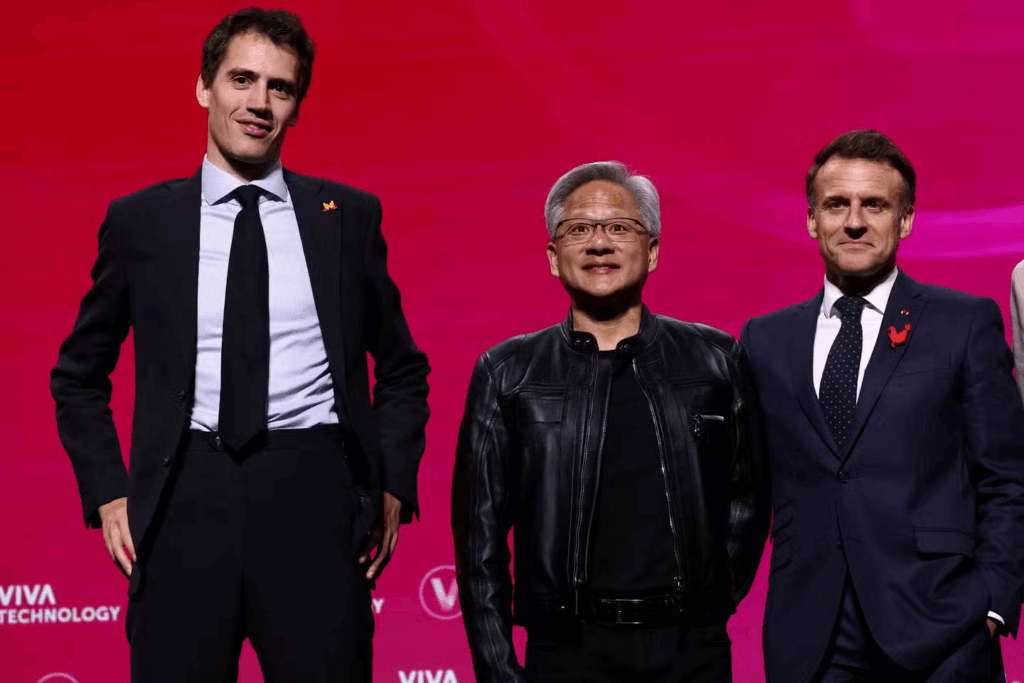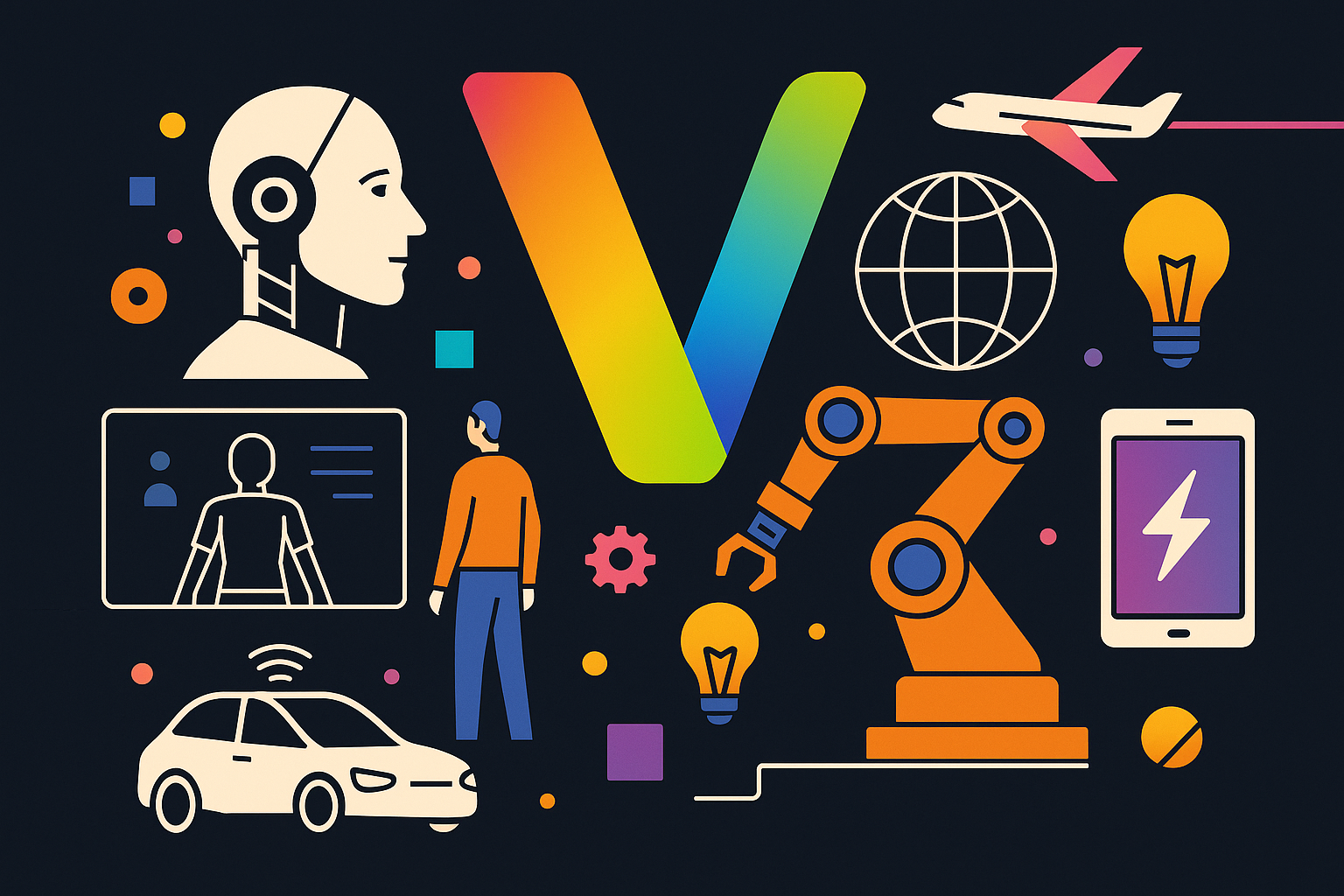VivaTech 2025 in Paris once again brings the future of technology to the forefront. Over three exciting days, industry leaders, startups, and innovators reveal breakthroughs in AI, healthcare, sustainability, and other key areas. This year’s event spotlights how artificial intelligence, brain science, digital transformation, and even space exploration are forging new industries and reimagining human experiences.
What’s Happening & Why This Matters
The event kicked off with a visionary keynote from Jensen Huang, Founder and CEO of NVIDIA. Huang framed AI’s evolution in waves — from Perception AI that interprets senses, through Generative AI that creates text and images, to the current era of Agentic AI, where autonomous systems plan, reason, and act in the real world. He introduced Blackwell, NVIDIA’s latest GPU platform, designed for massive AI workloads. Huang called AI data centers “factories of intelligence,” comparing their importance to electricity and the internet.
Europe’s growing role in AI production was a major theme. NVIDIA collaborates with top telecommunications companies, such as Orange and Telefónica, to build AI infrastructure across the continent, partnering with Mistral AI on a dedicated AI cloud. Huang also unveiled Lepton, a cloud service managing many specialized large language models, enabling companies to deploy AI modularly without bloated models.
Canada, named Country of the Year at VivaTech, showcased its AI ecosystem with 600 delegates and 100 companies. Canadian AI Minister Evan Solomon referred to this as a “Gutenberg moment,” emphasizing the potential of AI to be built on trust, ethics, and international cooperation. Startups from workforce tech to infrastructure highlighted Canada’s academic-business pipeline and strategic positioning between the U.S. and Europe.

In brain health, AI merges with neuroscience to transform treatments. The Paris Brain Institute and startups like Itay&Beyond utilize AI on lab-grown brain organoids to predict the effectiveness of drugs, thereby replacing animal tests. XARLabs combines AI and augmented reality to enhance neurosurgery precision and training, promising safer and more accessible procedures worldwide.
Day One ended with a robust discussion featuring French President Emmanuel Macron, Jensen Huang, and Mistral AI CEO Arthur Mensch. Macron stressed Europe’s commitment to building its own AI capabilities rooted in cultural values and autonomy. Huang and Mensch focused on moving beyond research to infrastructure and product development. Macron called this a “game changer” for European AI.

On Day Two, AI’s impact on drug development took center stage. Executives from AstraZeneca, Instadeep, and other companies explained how AI accelerates drug discovery by integrating biology, imaging, and real-world data. AI-driven models improve clinical trials, making treatments safer and more personalized. Ethical AI governance remains a priority.
Environmental technology sessions explored the transformation of raw data into actionable insights. The European Environment Agency emphasizes the importance of regular, high-quality environmental data — tools like Digital Earth Pacific track sea-level rise to help Pacific Island nations prepare for climate change. Tech companies advocate for improved data quality and enhanced collaboration to address pressing environmental challenges.
Retail and marketing leaders discussed how AI amplifies creativity and personalizes customer experiences without replacing humans. Executives from Adobe, LVMH, and Verizon noted AI’s role in reducing repetitive work and enhancing human insight.

Day Three covered cybersecurity talent shortages and the role of AI in upskilling professionals. The European Commission’s Cybersecurity Skills Academy connects training with employers to address a gap of millions of unfilled roles. Diversity and inclusion remain essential to attracting fresh talent.
Canva’s co-founder, Cliff Obrecht, shared growth lessons, emphasizing the importance of global thinking, hiring for a founder mentality, and embracing AI across teams. Justin McLeod, founder of Hinge, and relationship expert Esther Perel debated the impact of AI on dating, warning that overreliance on algorithms risks losing the human spark that is vital to authentic connection.
The event wrapped with an announcement of winners for various startup challenges, celebrating innovation in fintech, healthtech, greentech, and social impact.

- Female Founder Challenge:
- Hélène Briand, Co-founder and CTO of Verley, won this award, which celebrates women entrepreneurs.
- Tech for Change Award:
- Genesis, a startup focused on regenerative agriculture, received this award for their use of technology in this field.
- AfricaTech Awards:
- Reme-D. Inc was the overall winner, recognized for its excellence and potential in the African tech ecosystem. Plentify (GreenTech) and Zeeh Africa (E-commerce & FinTech) were also finalists.
- Innovation of the Year:
- Chipiron was recognized for its “technological audacity and the tangible impact of its innovation”.
TF Summary: What’s Next
VivaTech 2025 showcases the intersection of AI, sustainability, healthcare, and space, emphasizing innovation grounded in ethics and human values. Europe’s push for AI autonomy and Canada’s rising AI ecosystem signal global shifts.
Future technology will blend human creativity with AI efficiency, while addressing challenges such as cybersecurity talent shortages and environmental data usage. VivaTech sets the stage for these technologies to transition from the lab to real-world impact.
— Text-to-Speech (TTS) provided by gspeech


